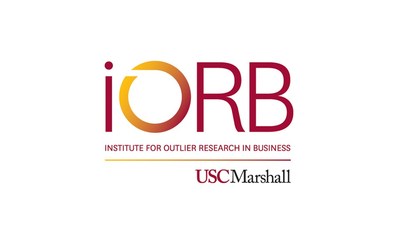Subject: SVY
AI Tools Enhance Researchers' Performance, rather than Displace, New Study Finds
LOS ANGELES, Feb. 27, 2020 /PRNewswire/ -- A new study published by the Organization Science Journal finds that the introduction of an artificial intelligence (AI) tool that automates research tasks in computer vision did not displace scientists, but rather increased the number and range of their ideas. The study titled "Automation, Research Technology, and Researchers' Trajectories: Evidence from Computer Science and Electrical Engineering," was authored by Professors Jeffrey L. Furman of Boston University and NBER and Florenta Teodoridis of the University of Southern California.

The rapid increase in the use of AI tools in business has raised concerns about rampant job displacement and increase in unemployment. The current study seems to mitigate such fears, at least in the area of scientific research.
"Automation reduces the cost of performing certain tasks to free attention to more valuable tasks," said Teodoridis. "Unlike other labor tasks, scientists' main task, that of scientific discovery, does not have hard end dates. If automation helps scientists speed up a discovery task, that enables them to focus on other new, and potentially more diverse, discovery paths."
The authors focused on the unexpected arrival and adoption of Microsoft Kinect, a motion-sensing research technology. Microsoft originally developed Kinect as a way to eliminate the handheld controller for its Xbox video game console. While no longer available as a gaming accessory, Kinect's motion-capture camera technology has since been adapted for commercial and academic uses.
In this case, the technology automated certain labor-intensive research tasks dealing with computer vision. The authors used 14 years of academic publication data in computer science, electrical engineering, and electronics (2000 to 2014) to track scientists' discovery efforts, before and after the arrival and adoption of Microsoft Kinect. A special strength of the authors' design is that it compared scientists affected versus those unaffected, before versus after the unexpected arrival of the Kinect. This double differencing is a powerful way to tease out the causal effect of the automating technology.
The authors found that the new technology led to not only an increase in the productivity of scientists but also an increase in the diversity of ideas and their distance from prior scientific discovery topics. Furthermore, the effect occurred for both inside and outside scientists, those who were and were not previously working in the area.
"The automating technology seems to free up inside scientists' time to more productively advance their scientific discoveries," said Furman. "It also enables new opportunities for outside scientists to combine their expertise with the automating technology to discover new solutions."
These findings suggest that such technologies could induce important advances in scientific discovery, similar to the recognized benefits of other research efforts that benefit from funding. Should AI research tools get similar support? Both Furman and Teodoridis caution that such policy implications are important, should not be taken lightly, and deserve more study.
For media inquires, contact:
Matthew Simmons, USC Marshall ? [email protected]; 213-821-9868
To cite this paper:
Furman, J., Teodoridis, F. 2020. "Automation, Research Technology and Researchers' Trajectories: Evidence from Computer Science and Electrical Engineering", Organization Science, https://doi.org/10.1287/orsc.2019.1308
About the Institute for Outlier Research in Business (iORB) at USC Marshall
iORB's goal is to support outlier research, which influences public debate, government policy, management strategy, and consumer welfare. This press release was prepared by the authors with the assistance of Gerard J. Tellis, Director of iORB.
SOURCE USC Marshall School of Business
These press releases may also interest you
|
News published on and distributed by:



